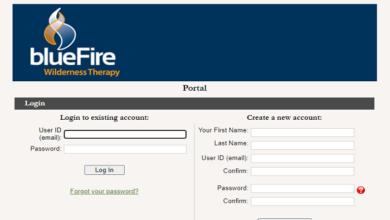Streamlining Public Distribution System with AePDS Bihar: A Comprehensive Guide

The Public Distribution System (PDS) is a cornerstone of India’s social safety net, ensuring food security for millions of citizens. In Bihar, the AePDS Bihar initiative has revolutionized the PDS landscape, bringing transparency, efficiency, and accountability to the system. This blog post delves into the intricacies of AePDS Bihar, highlighting its key features, benefits, and impact on the state’s PDS operations.
What is AePDS Bihar?
AePDS Bihar, an acronym for Aadhaar enabled Public Distribution System, is a state-level initiative that integrates Aadhaar authentication into the PDS framework. This integration ensures that food grains and other subsidized commodities are distributed to the rightful beneficiaries, eliminating fraudulent practices and ensuring targeted delivery of essential goods.
Key Features of AePDS Bihar
AePDS Bihar is characterized by several distinctive features that set it apart from traditional PDS systems:
-
Aadhaar-based Authentication: Each beneficiary is linked to their Aadhaar number, enabling biometric verification during ration distribution.
-
Electronic Point of Sale (ePoS) Devices: Ration dealers are equipped with ePoS devices, which capture real-time transaction data, ensuring transparency and accountability in the distribution process.
-
Mobile App for Beneficiaries: Beneficiaries can track their ration entitlement, distribution schedules, and transaction history using a dedicated mobile app.
Benefits of AePDS Bihar
The implementation of AePDS Bihar has brought about a multitude of benefits, including:
-
Elimination of Duplicate Beneficiaries: Aadhaar authentication has effectively eliminated duplicate and ghost beneficiaries, ensuring that food grains reach the intended recipients.
-
Reduced Diversion of Food Grains: The system’s transparency and accountability have significantly reduced the diversion of food grains into the black market.
-
Empowerment of Beneficiaries: Beneficiaries are empowered to track their entitlements and hold dealers accountable for fair distribution.
-
Enhanced Efficiency: ePoS devices have streamlined the distribution process, reducing paperwork and manual errors.
-
Real-time Data Availability: The system generates real-time data on distribution, enabling informed decision-making and policy formulation.
Impact of AePDS Bihar on PDS Operations
AePDS Bihar has had a transformative impact on the state’s PDS operations, leading to:
-
Increased Coverage: More eligible beneficiaries have been identified and enrolled in the system, expanding PDS coverage.
-
Improved Timely Delivery: Ration distribution has become more timely and efficient, ensuring that beneficiaries receive their entitlements on schedule.
-
Reduced Administrative Costs: Automation and digitization have reduced administrative costs associated with PDS operations.
-
Enhanced Grievance Redressal: Beneficiaries can easily lodge complaints and seek redressal through the system’s dedicated channels.
Conclusion
AePDS Bihar stands as a testament to the power of technology in transforming public service delivery. By leveraging Aadhaar authentication and ePoS technology, the system has addressed the long-standing challenges of PDS operations, ensuring that food security reaches those who need it most. As AePDS Bihar continues to evolve, it is poised to further strengthen the PDS framework, contributing to a more equitable and just society in Bihar.




